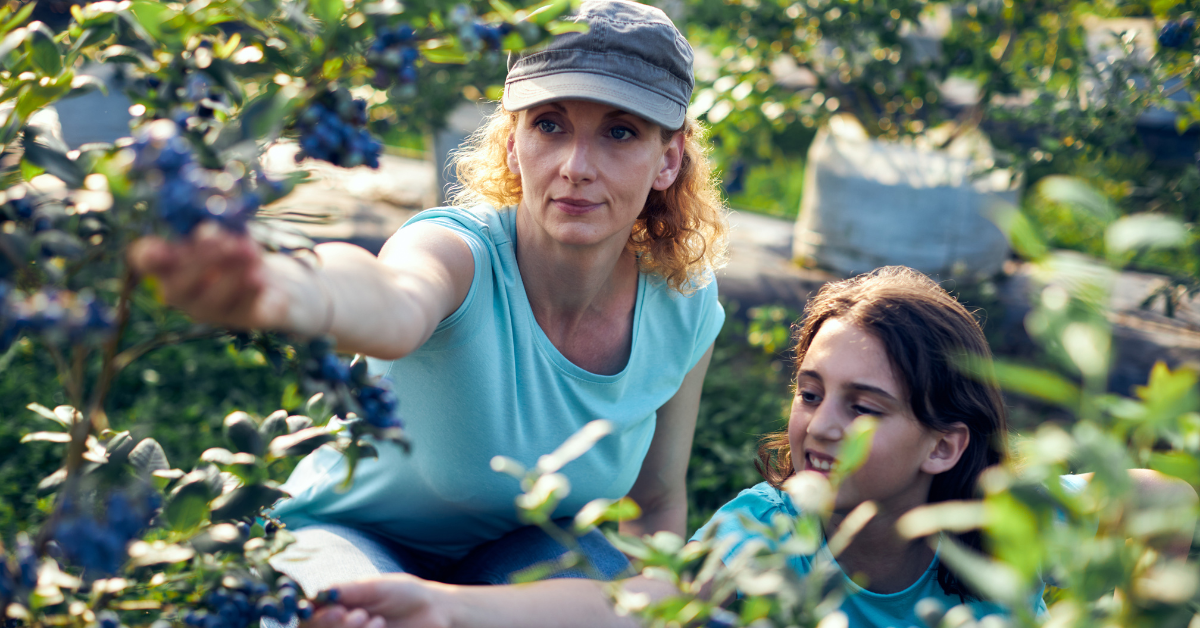
March 17, 2023
Incorporating agritourism activities on your farm can be a great way to promote your brand, engage with your ideal customers, create a profound impact on visitors, and increase revenue for your business. However, many Vermont farms are hesitant to get started with agritourism due to concerns around their liability when having visitors onsite.
Fortunately, the Vermont legislature passed a law in 2021 that established a limitation on liability for agritourism operators. Act 31 of 2021 acknowledges the “inherent risks” involved in participating in agritourism activities and shifts those risks to consumers, as long as they are properly warned.
To be protected by Act 31, a host must post the required warning notice (see below) in a clearly visible location at or near the main entrance to each agritourism activity, as well as in every written contract between the agritourism host and participant.
In this statute, an “agritourism activity” is defined as an interactive or passive activity on a farm that is carried out for recreational, educational, or entertainment purposes. Some examples include farming and food production workshops, pick your own opportunities, historical and cultural activities, and nature-based activities. It does not include lodging/farm stays or roadside farmstands exclusively devoted to the sale of merchandise or food.
The signage must be printed in black letters that are at least one inch in height and read exactly as follows:
"WARNING: Under Vermont law, an agritourism host is not liable for the injury or death of a participant in an agritourism activity resulting from the inherent risk of the agritourism activity. Inherent risks include the risk of animals, weather, land conditions, and the potential for you as a participant to act in a negligent way that may contribute to your own injury or death. You are assuming the risk of participating in this agritourism activity."
Act 31 does not apply to an agritourism host who:
-
commits a negligent act or omission concerning the safety of a participant that proximately causes injury or death to the participant;
-
has actual knowledge of a dangerous condition on the land, facilities, or equipment used in the activity or has actual knowledge of the dangerous; propensity of an animal used in the activity, which proximately causes injury or death to the participant, and does not make that danger known to the participant;
-
intentionally injures a participant or intentionally damages a participant’s property;
-
commits any other act, error, or omission that constitutes willful or wanton misconduct or criminal conduct that proximately causes injury or death to the participant; or
-
fails to post the required warning
For more information, you can read Act 31 in its entirety.
Liability is a legitimate concern for all businesses, and especially when inviting guests onto your property. But by taking some simple steps, like consulting with your insurance agent and leveraging the protections offered through Act 31, you can greatly limit risk and focus more of your attention on the benefits that agritourism can offer.
Disclaimer: This blog post is meant to be educational and inform you about Act 31 and does not constitute legal advice.
Thanks for reading the Vermont Agency of Agriculture, Food, and Markets’ Marketing and Agritourism Blog! I’m your host, Kristen Brassard. I’m an Agriculture Development Specialist focused on marketing and events for farm and food businesses. I graduated with a master’s degree in Food Systems from the University of Vermont in 2021 and have nearly ten years’ experience in marketing and events planning. Stay tuned every other week for tips on marketing and incorporating agritourism practices on your farm.

